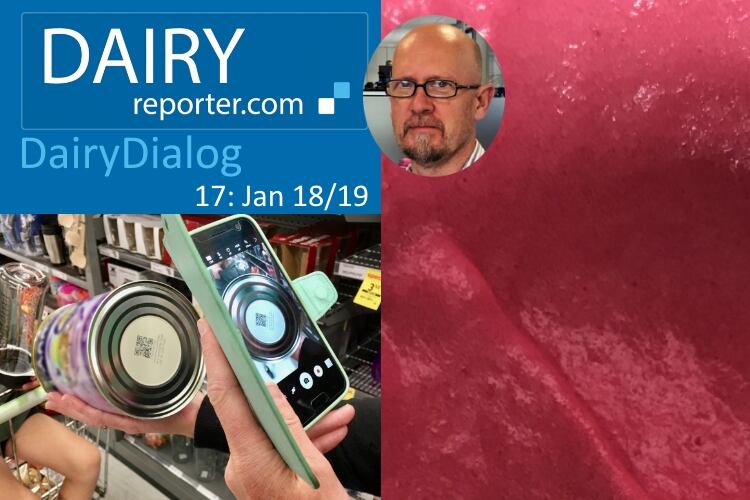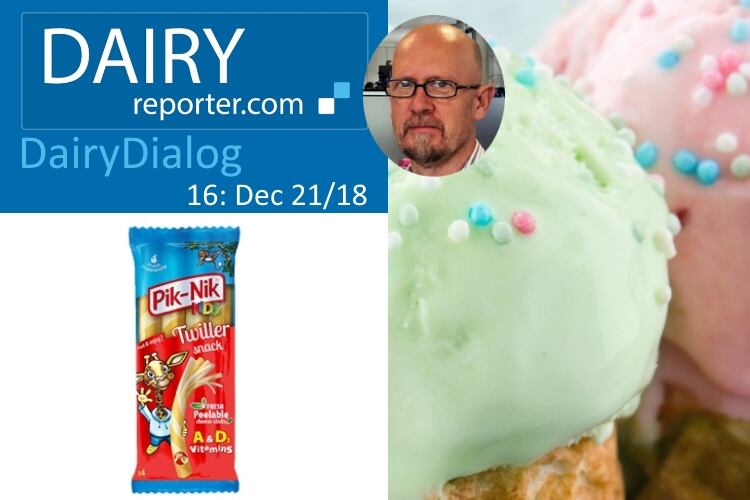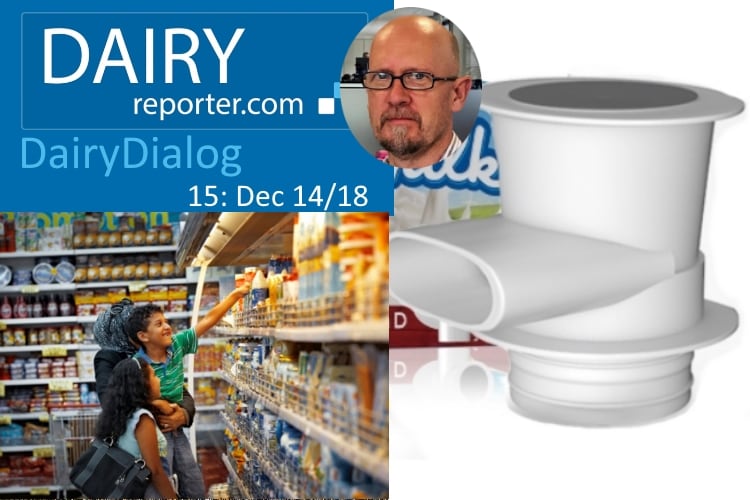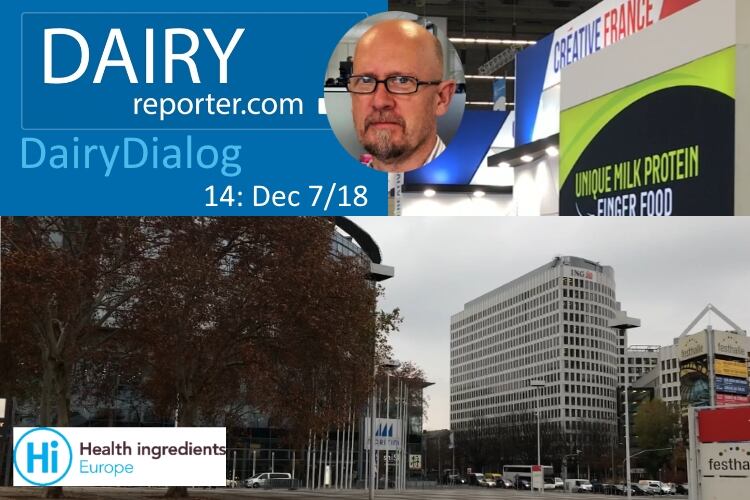We spoke with Fact.MR research consultant Santosh Kumar about their latest report, which states that vegan yogurt alternatives have now hit the mainstream as opposed to being a trend, with almond yogurt alternatives at the top of the list.
The second interview is with Adrian Simmons, managing director of Total Brand Security (TBS) on the company’s new coating technology, which enables smartphone scannable QR codes for FMCG products.
And we have our weekly look at the global dairy market with Liam Fenton from INTL FCStone.
Fact.MR says vegan yogurt alternatives are now mainstream
The vegan yogurt-alternative market is expected to continue its bullish run, driven by a combination of macroeconomic and industry-specific factors. Gains have been driven by vegan products’ availability in a variety of flavors, and the health and wellness trend. These factors helped vegan yogurt substitute sales increase by more than 30,000 metric tons in 2018 over 2017, according to recent analysis by Fact.MR.
The Fact.MR study states that almond-based varieties remains the bestseller, accounting for more than half of total vegan yogurt alternative sales in 2018. The trend is expected to prevail as vegan companies continue to introduce new almond-beverage-based yogurt-alternative products to meet consumers' taste preferences while enhancing the products’ nutritional value.
The use of vegan products in food chains and restaurants is gradually gaining traction; the study found moderate growth in the utilization of vegan yogurt alternatives and products in the food service industry. Although households dominate overall consumption, demand for vegan yogurt from households and HORECA (hotel, restaurant, café) is growing at comparable rates.
Mindful choices trend
Companies in the food processing and production industry are looking to capitalize on the 'mindful choices' trend. On account of the popularity of the trend, many both small and large companies are launching new vegan products to consolidate their position. The fierce competition induced in the market as a result of the growing demand for vegan products is expected to lower pricing and encourage innovations in the field.
Quick and easy ingredient procurement
Vegan alternatives utilize soy, almond, coconut and other plant-based beverages for production. These ingredients are easily available, saving processors the volatilities associated with other ingredients.
The Fact.MR study states the Asia Pacific region excluding Japan (APEJ) will remain the largest market for vegan yogurt alternatives globally. The APEJ market is likely to reach $3.5bn in revenues by the end of 2019. Asia Pacific is home to some of the most populous countries on the planet and the evolving consumer needs and preferences promise formidable growth prospects in the region.
The Fact.MR report tracks the vegan yogurt market for the period 2018-2027. According to the report, the vegan yogurt market is projected to grow at 4.8% CAGR through 2028.
Fact.MR is a market research company offering syndicated and customized market research reports.
TBS delivers technical solution for electronic traceability
Total Brand Security (TBS), a UK-based global brand protection and security company, has delivered a new coating technology that enables the creation smartphone scannable QR codes for FMCG products.
The development is thanks to TBS’ utilization of the unique DataLase laser-reactive pigment technology, and global printing partner, Kian Joo Group.
The QR codes allow consumers to electronically track and trace ingredients and products, providing complete supply chain traceability and transparency. The solution is particularly ideal for brands and products where provenance is crucial.
Adrian Simmons, managing director of TBS, said, “As more products cross borders, there’s a growing demand for information about where our food has come from and what goes in to it. TBSlase provides a secure marking solution, ensuring complete traceability through the entire supply chain, enhancing security and product authentication.”
Tony Foo, general manager at Kian Joo Group, added, “Through two years of research and development and teams from all parties working together to overcome any issues, the TBSlase solution has now been successfully implemented by a nutrition manufacturer.
“Thanks to TBSlase, line speeds at the manufacturer’s site have increased as marking can be executed more quickly and efficiently. The solution also has a much lower reject rate, produces less dust and delivers clearer, high-quality codes.”
TBS designed and developed a coating formulation incorporating the pigment technology from DataLase. The coating is printed on to a product or pack and when exposed to a laser, at the point of packing or filling, a color change reaction is generated resulting in a high definition, premium quality digital print. The resulting clarity of coding makes it easy for consumers to see and scan the code on packs.
Mark Naples, chief marketing officer at DataLase, said, “DataLase technology enables brand owners to do so much more with their packaging than other printing solutions. Our business is built around strengthening the connection between consumers and brands, and this is an excellent example of a solution that meets the needs of the market.”




